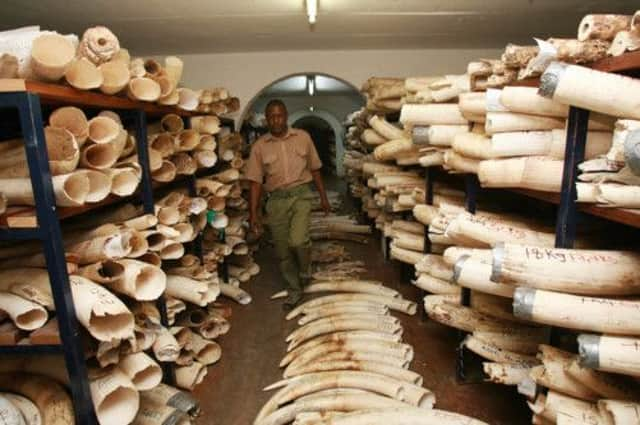South Africa poaching: Call to legalise rhino trade


More controversially, the party has also called for more discussion about legalising the trade in rhino horns, which can grow back after cutting.
The rate of poaching in South Africa – home to most of Africa’s rhinos – this year is on track to exceed the record number of illegal kills in 2012, conservation officials say.
Advertisement
Hide AdAdvertisement
Hide AdThe more money, innovation and publicity go into the cause, the more poachers, who see rhino horn as a high-priced commodity which will fetch good money in Asia, where it is used medicinally, seemingly diversify their hunt.
Calling for the “disaster” designation, opposition MP Anthony Benadie said: “It is clear that the current approach by the South African government in response to the onslaught on our rhino has been left wanting and that other avenues of protecting the species from extinction must be intensely explored.”
“A total ban on rhino horn trade will eventually lead to the complete extinction of the species. A regulated and controlled trade would supply demand and dismantle poaching syndicates through open market pressures,” Mr Benadie added.
Some conservationists warn that a legal trade would not necessarily stamp out the illegal one. Besides, it would require the approval of the Convention on the International Trade in Endangered Species, or Cites. The group, which has 173 signatory countries, met in Bangkok in March and will not meet again for three years.
Poachers killed 668 rhinos in South Africa in 2012, a 50 per cent increase over the previous year. On 18 April, South Africa said 232 rhino had been illegally killed so far this year, 70 per cent of them in the vast Kruger National Park.
“The patterns keep indicating that it will be over 800 this year,” said Dr Jo Shaw a rhino expert in South Africa for the World Wildlife Fund.
Albi Modise, spokesman for South Africa’s department of environmental affairs, said the use of gun silencers and other sophisticated equipment by poachers “requires that we up our game as well in terms of anti-poaching activity.”
The poaching crisis has triggered an array of measures whose effectiveness is hotly debated.
Advertisement
Hide AdAdvertisement
Hide AdThe private Sabi Sand game reserve has injected horns of some rhinos with a pink dye and chemicals that could sicken anyone who ingests rhino horn. The tactic would be tough to implement in the nearby Kruger park, where rhinos are harder to track in the vast expanse and where rangers sometimes clash with armed poachers from neighbouring Mozambique. Cites is pushing Mozambique to get tougher on poachers, and also urging Vietnam to take steps to curb demand.
Tom Snitch, an American expert in imagery from satellites and drone aircraft, plans to test small drones in a South African game reserve in late May. He will use satellite imagery and mathematical models to plot flight paths based on predictions of the movements of both rhinos and poachers.
“If we see the poachers, we put the drones on top of them and basically vector them in where they can be apprehended,” Snitch said.
The World Wildlife Fund and TRAFFIC, a wildlife monitoring network, are launching an ad campaign on social media networks and elsewhere in Vietnam. One poster depicts hands and feet on a rhino’s face, noting human nails and rhino horns are both made from a tough protein called keratin.
SEE ALSO: